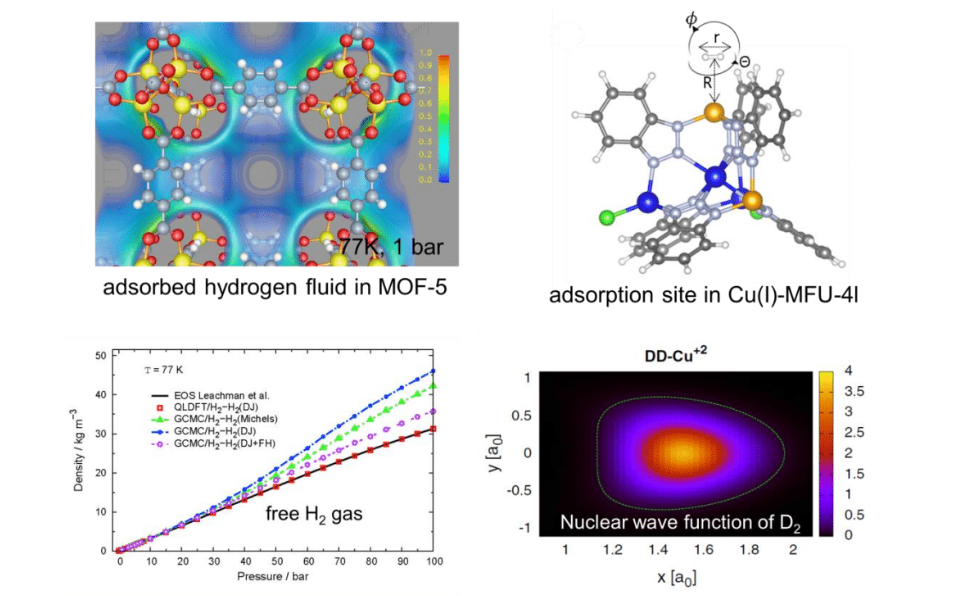SESSION 2: ELECTRONIC PROPERTIES AND DERIVED FUNCTIONS OF MOFS
The Interaction of Dihydrogen with Metal-Organic Frameworks: The Importance of Nuclear Quantum Effects and their Application for Hydrogen Isotope Separation
School of Science, Chair of Theoretical Chemistry, TU Dresden, 01062 Dresden, Germany
Helmholtz Center Dresden-Rossendorf, Institute of Resource Ecology, Leipzig Research Branch, Permoserstr. 15, 04318 Leipzig, Germany
Keywords: hydrogen, isotopes, nuclear quantum effects, host-guest interactions, isotope separation
A lot of research has been devoted to Metal-Organic Frameworks (MOFs) as potential candidates for room temperature hydrogen storage. Optimistic predictions, in particular fuelledbyclassical computersimulations, have pushed the fieldforward in the 2000’s. However, due tolarge discrepancy to experiment, which failed confirming those predictions, the research field collapsed. Recently, we observe a renaissance ofhydrogen storage at liquid nitrogen temperature (77 K). In this talk, I will first highlight why most classical computer simulations on hydrogen in MOFs are flawed. I will introducea quantum-mechanical method to treat correctly the surface-adsorbed hydrogen quantum liquid. Then, I will focus on the treatment of nuclear quantum effects at strongly adsorbing sites in MOFs.In the last part of the presentation I will demonstrate that the nuclear quantum effects of hydrogen can be exploited for hydrogen isotope separation, in particular for the capture of radioactive tritium.
Figure 1: Some examples showing the importance of nuclear quantum effects of adsorbed dihydrogen.
